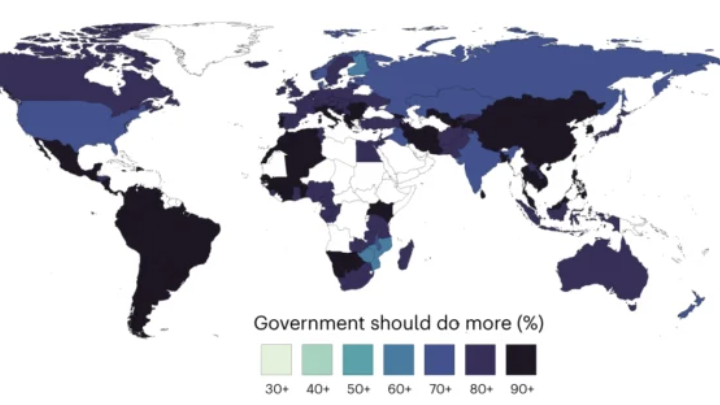Please click link at bottom to read full, original abstract at source.
Abstract
Mitigating climate change necessitates global cooperation, yet global data on individuals’ willingness to act remain scarce. In this study, we conducted a representative survey across 125 countries, interviewing nearly 130,000 individuals. Our findings reveal widespread support for climate action. Notably, 69% of the global population expresses a willingness to contribute 1% of their personal income, 86% endorse pro-climate social norms and 89% demand intensified political action. Countries facing heightened vulnerability to climate change show a particularly high willingness to contribute. Despite these encouraging statistics, we document that the world is in a state of pluralistic ignorance, wherein individuals around the globe systematically underestimate the willingness of their fellow citizens to act. This perception gap, combined with individuals showing conditionally cooperative behaviour, poses challenges to further climate action. Therefore, raising awareness about the broad global support for climate action becomes critically important in promoting a unified response to climate change.
Widespread global support for climate action
The globally representative data reveal strong support for climate action around the world. First, a large majority of individuals—69%—state they would be willing to contribute 1% of their household income every month to fight global warming (Fig. 1a). An additional 6% report they would be willing to contribute a smaller fraction of their income, and 26% state they would not be willing to contribute any amount. The proportion of respondents willing to contribute 1% of their income varies considerably across countries (Fig. 1b), ranging from 30% to 93%. In the vast majority of countries (114 of 125) the proportion is greater than 50%, and in a large number of countries (81 of 125) the proportion is greater than two-thirds.

Read the full post at Nature - Climate Change.





